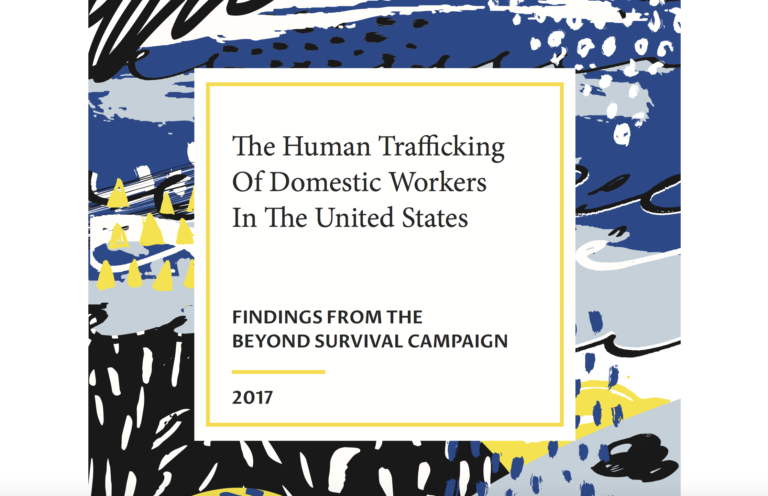This report collected data from different organisations who work closely with domestic worker survivors of human traffcking. The data from these organizations reveal the depth and nature of traffcking in the domestic work sector, and shed light on the specifc forms of exploitation often faced by trafficked domestic workers.
The findings in the report have been quantified from data collected from six NDWA member affiliates who anchor the Beyond Survival campaign and work closely with domestic worker survivors of human trafficking. The data from these organizations reveal the depth and nature of trafficking in the domestic work sector, and shed light on the specific forms of exploitation often faced by trafficked domestic workers. Among the 110 cases of domestic worker trafficking reported across all six affiliates, our findings show that:
- 85% of domestic worker trafficking survivors report having pay withheld or being paid well below minimum wage
- 81% have lived in abusive living conditions
- 80% have been tricked with false or otherwise de – ceptive contracts
- 78% have had employers threaten to report them for deportation if they complain
- 77% report having their movements restricted or monitored by their employers
- 75% experience isolation from the outside world, with employers cutting off access to communication
- 74% report having experienced emotional or verbal abuse by their employer
- 73% report working excessive overtime, more than 48 hours per week
- 66% report having experienced physical or sexual abuse, either by their employer or a family member of their employer
- 62% report having their passports or other ID taken away from them by employers
- 45% report being in fear of physical harm if they were to try to leave their employment situation
This report establishes that domestic workers experience labour conditions that are often indicators of the most extreme form of labour exploitation – human trafficking; that resources are needed to meaningfully address the needs of survivors and support their leadership development; and that federal policy changes are needed to effectively hold traffickers accountable and prevent the human trafficking of domestic workers.

